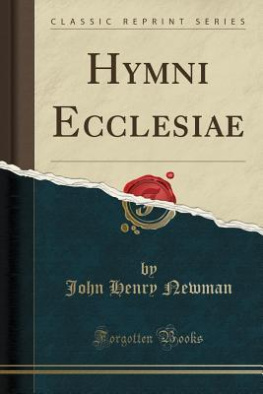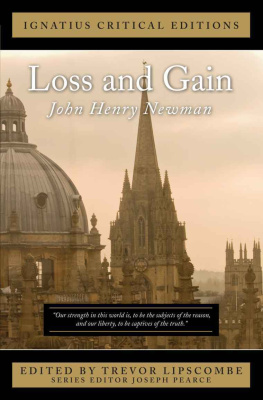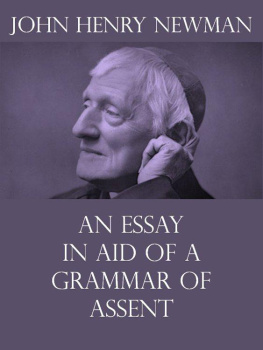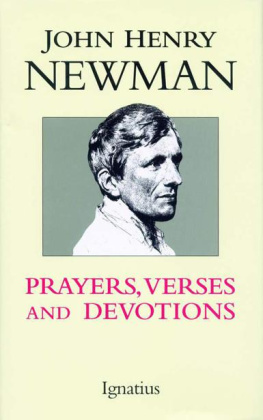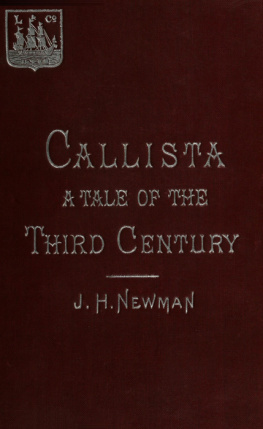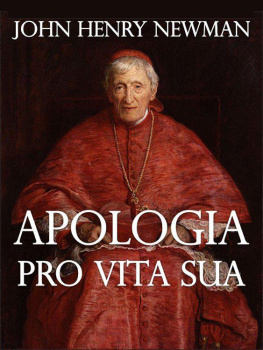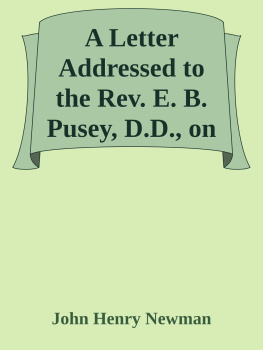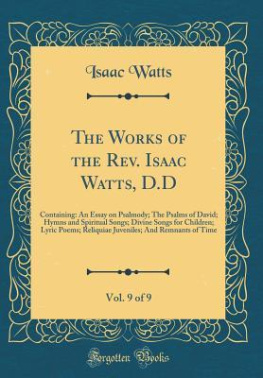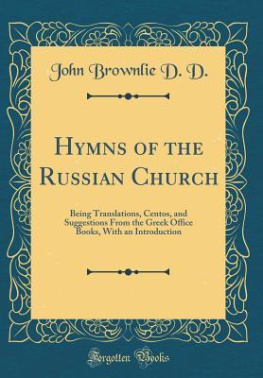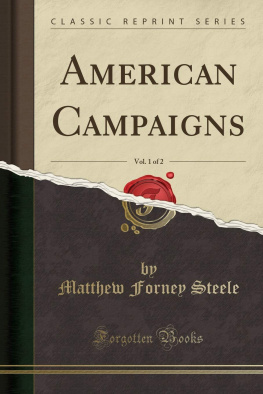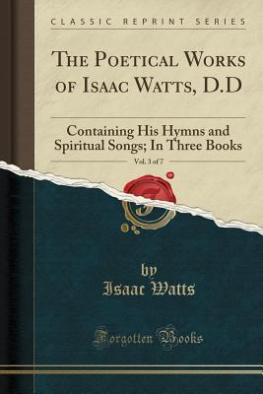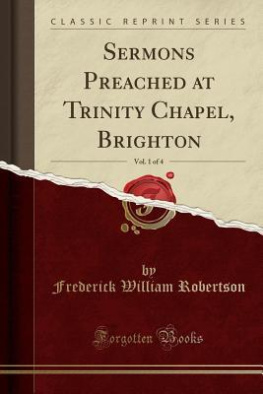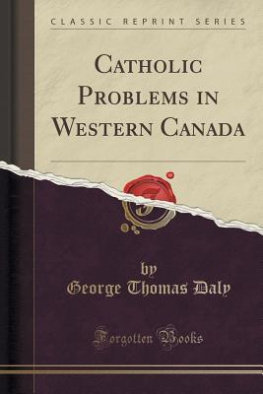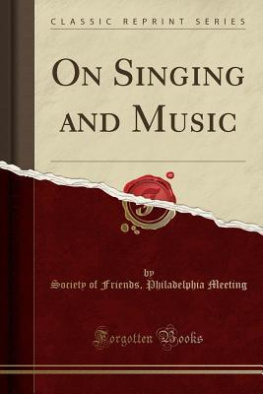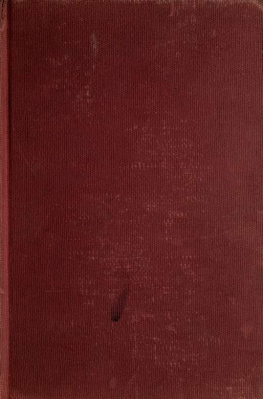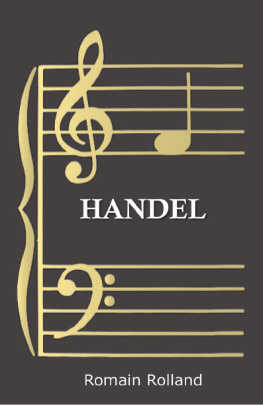The Project Gutenberg EBook of Hymni ecclesiae, by John Henry Newman
This eBook is for the use of anyone anywhere at no cost and with
almost no restrictions whatsoever. You may copy it, give it away or
re-use it under the terms of the Project Gutenberg License included
with this eBook or online at www.gutenberg.org
Title: Hymni ecclesiae
Author: John Henry Newman
Release Date: December 23, 2010 [EBook #34733]
Language: Latin
*** START OF THIS PROJECT GUTENBERG EBOOK HYMNI ECCLESIAE ***
Produced by Steven Giacomelli, Stephen Hutcheson, and the
Online Distributed Proofreading Team at http://www.pgdp.net
(This file was produced from images generously made
available by The Internet Archive/Canadian Libraries)
HYMNI ECCLESIAE
PARS I
PARS II
E BREVIARIIS
ROMANO, SARISBURIENSI, EBORACENSI
ET ALIUNDE
Londini APUD
ALEXANDRUM MACMILLAN
1865 OXONII
EXCUDEBANT
T. COMBE, A. M., E. PICKARD HALL, ET H. LATHAM, A.
M.
ACADEMIAE TYPOGRAPHI.
HYMNI ECCLESIAE.
PARS I.
E BREVIARIO PARISIENSI.
PREFACE.
Of the three kinds of poetical composition which, in accordance with the Apostles direction, have ever been in use in the Church, Psalms and Hymns and Spiritual Songs, two are supplied by inspiration. We have no need, through Gods bounty, to turn our thoughts to the composition of Psalms or Songs; and, to judge from the attempts which have been made, doubtless we are unequal to it. And the unapproachable excellence of the two which have been supplied serves to suggest the difficulties which beset the composition of the third which has not been supplied. Indeed, it is hardly too strong to say that to write Hymns is as much beyond us as to originate Psalmody. The peculiarity of the Psalms is their coming nearer than any other kind of devotion to a converse with the powers of the unseen world.
They are longer and freer than Prayers; and, as being so, are less a direct address to the Throne of Grace than a sort of intercourse, first with oneself, then with ones brethren, then with Saints and Angels, nay, even the world and all creatures. They consist mainly of the praises of God; and the very nature of praise involves a certain abstinence from intimate approaches to Him, and the introduction of other beings into our thoughts, through whom our offering may come round to Him. For as He, and He only, is the direct object of prayer, so it is more becoming not to regard Him as directly addressed in praise, which would imply passing a judgment on Him who is above all scrutiny and all standards. The Seraphim cried one to another, Holy, Holy, Holy, veiling their faces, neither looking nor speaking to Him. The Psalms, then, as being praises and thanksgivings, are the language, the ordinary converse, as it may be called, of Saints and Angels in heaven; and, being such, could not be written except by men who had heard the unspeakable things which there are uttered. In this light they are more difficult than Prayers.
Beggars can express their wants to a prince; they cannot converse like his courtiers. Much the same remark may be made about the Songs or Canticles of the Church, which are also inspired, and are a kind of Psalms written for particular occasions, chiefly occasions of thanksgiving. Such are the two Songs of Moses, the Song of Hannah, those in Isaiah, the Song of Hezekiah, of Habakkuk, of the Three Children, of Zacharias, of the Blessed Virgin, and of Simeon, most of which are in the Breviary, and the last four are retained in our own Reformed Prayer Book. Yet though Hymns, as being of a measured length, and restrained metrically, are so far safer to attempt than Psalms or Songs, they have their own peculiar difficulties. They are direct addresses to Almighty God, which ever must be most difficult to the serious mind, whatever be the difficulty of other devotions. This, in the instance of Prayers, has led to the use of Sentences, such as occur in our own Services; which, besides the advantage of extreme brevity, for the most part admit of being taken from Scripture.
It has led also to the repetition of the Lords Prayer, and of the Kyrie Eleison; and, again, to the use of Collects, which lessen the difficulty of addressing God by subjecting it to fixed rules. Hence our best Family Prayers are what may be called a succession of Sentences strung together, the simple and concise expression of our humiliation, fear, hope, and desire, for ourselves and others. Long Public Prayers, to make a general assertion which of course admits of exceptions, are arrogant and irreverent; hence the Pharisees made them. Hence, too, the unchastised effusions which abound in the present day among those who have left the Church or lost her spirit. The great Eucharistic Prayer is nearly the only long prayer in the Catholic Church; and there is every reason to suppose that in its substance it proceeds from inspired authorities. In our own Service it has been separated by our Reformers into three distinct portions.
Hymns, however, being of the nature of praises, cannot be altogether brought down to that grave and severe character which, as being direct addresses to God, they seem to require; and this is their peculiar difficulty. To praise God specially for Redemption, to contemplate the mysteries of the Divine Nature, to enlarge upon the details of the Economy of Grace and yet not to offend, to invoke with awe, to express affection with a pure heart, to be subdued and sober while we rejoice, and to make professions without display, and all this not under the veil of figurative language, as in the Psalms, but plainly, and (as it were) abruptly, surely requires to have had ones lips touched with a coal from the Altar, to have caught from heaven that new song which no man could learn, but the hundred and forty and four thousand which were redeemed from the earththe virgin followers of the Lamb. Our Church, with the remarkable caution which she displays so often, has not attempted it. She has received the Psalms and Songs from Scripture; and, rejecting the Roman Hymns, has substituted in their stead, not others, but a metrical version of the Psalms. This abstinence has led on the one hand to some of her members on their own responsibility supplying the deficiency, and has incurred the complaint of others, who argued that she ought to have taken on herself what, being right in itself, will certainly be done by private hands, if not by the fitting authority. But, in truth, when it was necessary for her to abandon those she had received, nothing was left to her but to wait till she should receive others, as in the course of ages she had already received, by little and little.
The Roman Hymns, whether good or bad, were the work of no one generation, much less the outpourings of one mind. They were not the contents of one collection, published all new in a day according to the will of man. They were the gradual accumulations of centuries, bearing in old and new upon one treasure-house. When there was a call to reject them, there was nothing to be done but begin again. We could not be young and old at once. It was a stern necessity alone which could compel us to change from what we were; but being changed, so far we were not what we were, and must be what the primitive Church was in these respects, poor and ill-furnished.
We began the world again. This is the proper answer to inconsiderate complaints and impatient interference. There have before now been divines who could write a Liturgy in thirty-six hours. Such is not our Churchs way. She is not the empiric to make things to order, and to profess to anticipate the course of nature, which, under grace, as under Providence, is slow. She waits for that majestic course to perfect in its own good time, what she cannot extort from it; for the gradual drifting of precious things upon her shore, now one and now another, out of which she may complete her rosary and enrich her beads,beads and rosary more pure and true than those which at the command of duty she flung away.

